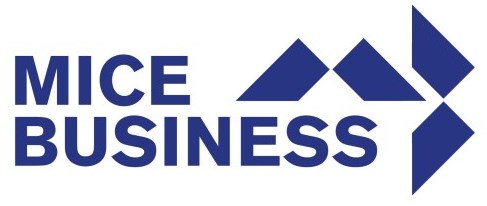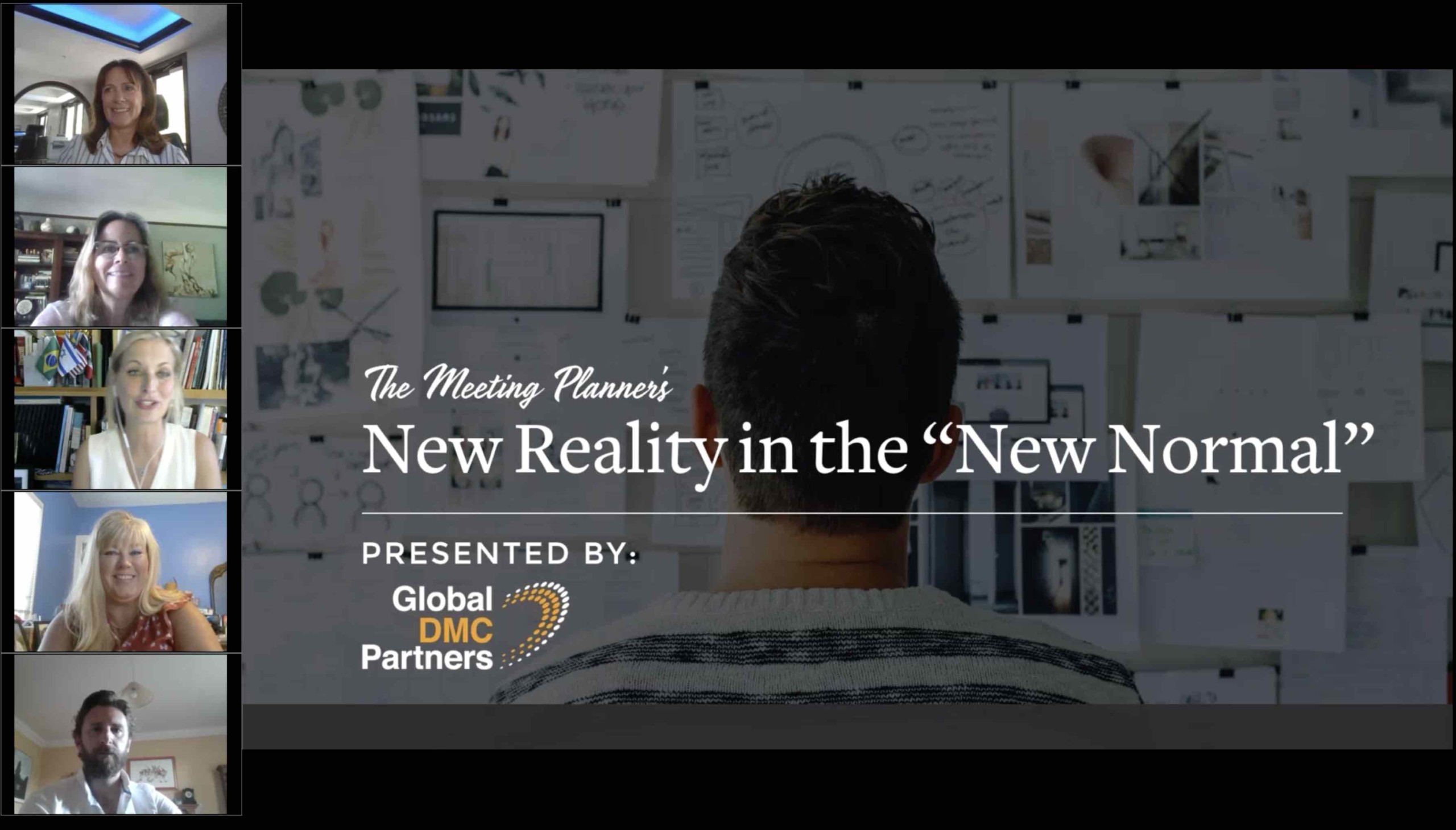Global DMC Partners (GDP), the global network of independently owned destination management companies (DMCs) and creative event experts, held a virtual open forum on Wednesday, June 24.Facilitated by GDP President and CEO Catherine Chaulet, the panel discussion, The Meeting Planner’s New Reality in the “New Normal,” addressed the new challenges that planners face due to the COVID-19 pandemic’s short- and long-term effects on the meetings and events industry. The featured panelists included Becky Cavanaugh, Associate Director, Medical Meetings and Events, Syneos Health; Elliott Grant, Director, Black Book; Kim Hester, Vice President, JNR Incorporated; and Margaret Stafford, Meeting Director, the American Bar Association Antitrust Law Section. More than 700 meeting and event professionals from around the world registered for this important virtual gathering.
The discussion began with an overview of GDP’s Q2 Meetings & Events Pulse Survey. Conducted in May 2020, the survey compiled responses from nearly 400 planners based in the U.S. (64 percent), the U.K. (10 percent), Europe (10 percent), Canada (seven percent), Latin America (four percent), APAC (three percent) and Africa and the Middle East (two percent). Key findings from the survey included the following:
Ninety-seven percent of meeting planners responded that their 2020 and 2021 programs were impacted by COVID-19.
The desire for face-to-face meetings has not dropped nor will it be replaced. Incentives are here to stay, despite rising use of virtual meetings and hybrid events.
General fear of COVID-19 and travel restrictions continue to be top of mind.
Sixty-four percent of respondents predict they will host a live event between August 2020 and January 2021.
The discussion continued with a live audience poll, asking the panelists and participants if they expect their company or clients will host face-to-face or hybrid meetings and events in Q3 or Q4 of 2020. Forty-four percent of participants responded no. Twenty-five percent responded yes starting in Q4, and twelve percent responded yes starting in Q3. Twenty percent responded that they are still uncertain on timing.
The conversation then continued to virtual and hybrid solutions. GDP’s previous survey had found that sixty-three percent of survey respondents had no plans to go completely virtual in 2021. The panel agreed and also shared that hybrid solutions will be popular for 2021. The panelists provided examples of virtual and hybrid solutions, including a 3,500-person meeting transitioning to virtual. The panelists shared that some of their biggest challenges transitioning to virtual and hybrid events have been pricing, security and the learning curve for learning new technology platforms. Virtual technology recommendations were discussed and compiled by GDP during the panel. The full list of suggested virtual solutions for meeting planners is available upon request
Moving on to incentive programs, GDP’s survey found that sixty percent of 2020 incentive programs are still moving forward, just postponing to later dates, and that seventy-five percent of 2021 incentive programs are moving forward. Several of the panelists agreed that there is no strong alternative to an incentive trip and that personal connections cannot be replicated virtually, which is a key part of incentives. One panelist suggested that incentive trips may be even more important now as they were largely unavailable for such a long period of time.
The discussion continued with a live audience poll of top concerns for future planning (choice of two per respondent):
Convincing stakeholders to hold live or hybrid meetings (63 percent)
Contract negotiations/liability/waivers (43 percent)
Implementing and enforcing health and sanitations protocols (37 percent)
Budgets and cost increases (27 percent)
Lack of airlift (25 percent)
These responses were very much in line with GDP’s earlier survey, which found the top four U.S.-based planner concerns for moving forward with events (highest to lowest):
General fear
Lower attendance
Travel restrictions
Negotiating contract terms
The top four concerns from planners based outside of the U.S. (highest to lowest) were as follows:
Travel restrictions
Fear in general
Lower budgets
Lower attendance
The virtual discussion concluded with the panelists’ recommendations for meeting planners operating in the “New Normal.” All panelists emphasized the importance of tracking data for each program, especially rapidly fluctuating costs such as airfare, and having a plan of action from start to finish that is tiered based on the reopening phases of the host destination. One panelist suggested attending as many webinars as possible to stay up-to-date with changing information as well as legal guidelines and contracting terms.
Source: www.globaldmcpartners.com





